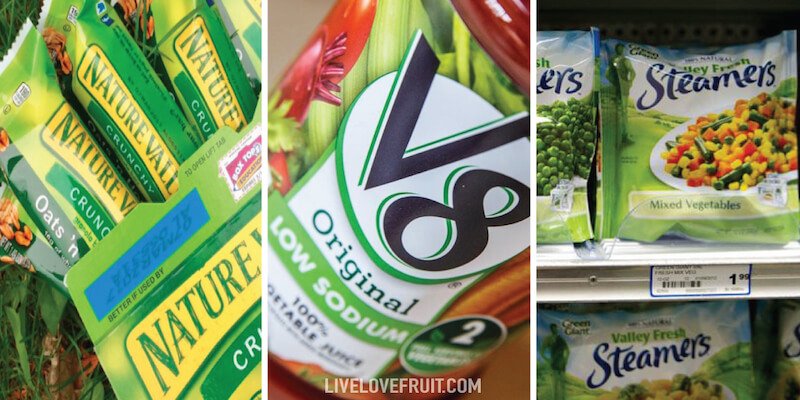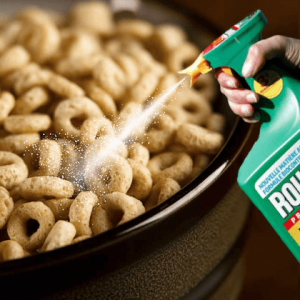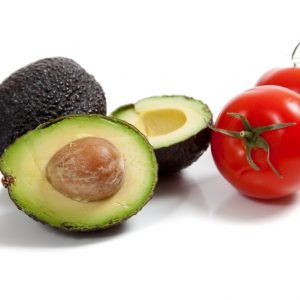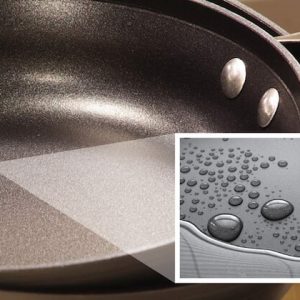You’d be surprised the number of food products you purchase that are created with ingredients produced by Monsanto. Many people think they are health foods, when in reality, they contain genetically modified ingredients that are toxic to our body.
Many of the ingredients in packaged foods are derived from genetically modified organisms. They are often hidden in the ingredients, labelled as things you’d think were harmless.
Ingredients like starch (in any form), high fructose corn syrup (HFCS), dextrin, maltodextrin, dextrose, malt (in any form), hydrolyzed vegetable protein, baking powder, caramel colour, sugar, aspartame, nutrasweet, phenylalanine, equal, confectioners sugar, fructose (in any form), glucose, condensed milk, milk powder, soy, cottonseed oil, xanthan gum, corn (in any form) and more, usually indicate the presence of hidden GMOs, unless the product is certified organic or Non-GMO project verified.
There are many concerns regarding our health and the environment that we should take note of, so that we can stop supporting the use of GMO products. Genetically modified food has the ability to generate new plant pathogens, supports the movement of herbicide resistant genes to other plants, has detrimental consequences for plant biodiversity and wildlife, and can eradicate populations of beneficial insects (such as honey bees). Growing GMO crops also discourages the important practice of crop rotation, which is proven to keep soil healthy and nutritious.
The potential health risks of GMOs include birth defects, transfer of genetically modified DNA into the human body, triggering gluten-related disorders like Celiac Disease, development of cancer, a direct link to the development of Autism, Parkinson’s and Alzheimer’s Disease, gastrointestinal problems, and more. GMO’s are not completely safe for consumption – we do not know enough about them yet to make any definitive statements. Look after your health, and always opt for locally grown, and organic (or just grow it yourself!).
Monsanto-Created Food Products
There are many GMO-free companies out there too, so be sure to check those out, and support them whenever you can.
Here is a list of companies that you should absolutely avoid if you don’t want to eat Monsanto-created food products:










The title and exit are misleading, these are not “Monsanto Companies” Monsanto does not own P&G or Heinz or Coca Cola, these companies likely use products that have been treated with Monsanto chemicals or are GMO, but many of these companies also make organic items that by default are non gmo. Your misleading characterization of these companies being owned by Monsanto as well as your ivergeberalization of the ingredients in their products completely kills your credibility with people like me who are looking for solid non-biased facts, and who aren’t swayed by simple fear mongering. This article could be more useful if it were less misleading.
Hey Ryan, you’re right. This is a much older article, so I’ve changed up the title to read “Monsanto-Created” since the ingredients are technically, Monsanto-owned/created. Hope you can check out some of my more recent articles on Roundup/Glyphosate contamination.
Monsanto did not create soy and malt and many other ingredients in the list. Soy and malt are okay, unless modified.. You are exagerating… Article is very misleading. I am an activist myself. Be careful what infogeaphics you use or put your trust in…
Also, you use a picture which says that Monsanto owns cocacola and pepsi and heinz and nature valley and others. It is posted on pinterest. I think that is not real truth but just so that they are using some toxic ingredients.
The list of “Monsanto-Created Food Products” are the food products that contain Monsanto-engineered ingredients like GM soy, and the like, which are designed to be “roundup-ready” a chemical created by Monsanto. A good majority of soy out there is GM, unless organic. The products listed in this list are not organic. I guess I could create a picture of my own that says “Monsanto-Created Food Products” instead of “Monsanto Companies”, but I simply have not got around to it yet. These companies do use ingredients from fields that utilize Roundup and Glyphosate, however, so regardless of any of that, these companies should be avoided.
This is good. We have organic Heinz ketchup in our fridge. It has a EU certificate for organic qualification. Is this non-gmo by default ?
Technically, organic has to be non-GMO. Hope that helps!
Then how is it still available to be posted?
It must be as toxic as other items that are biogradable.
The government allows lots of toxic products on the market – we need to make educated decisions ourselves and research, not just trust everything they throw at us.
Hello Carly. I read the updated article you wrote, and thank you.
There are many brands with many flavors.
If you “stay away” from the flavors that are on the list, will you be safe?
Thank you.
If you stick with organic certification, you will be safe! Organic foods cannot be GMO 🙂
Also, it’s not exactly a complete list. Tony Mitra has the so far most complete list of 7000 foods and their origins. it turns out canada is the worst offender with the most contamination and the USA is a close 2nd. Surprisingly, Mexico’s products are among the least contaminated. Tony lists the ppb I think and Moms Across America found that 0.1 ppb is the dose that destroys gut bacteria. In their EPA list, all their sas moles were well over 0.1 and especially shocking were the hay and bagged livestock feeds that were 100 to 400 ppb. So here I’ve been trying to grow my own outside the system and instead poisoning my animals and myself through recycling their manure compost into my garden.
And californians ( and other states) have been fooled into voting no on labeling.
Tony Mitra even found organic, ORGANIC! chickpeas and lentils with significant contamination.
That is really concerning. Glyphosate seems to have contaminated everything 🙁